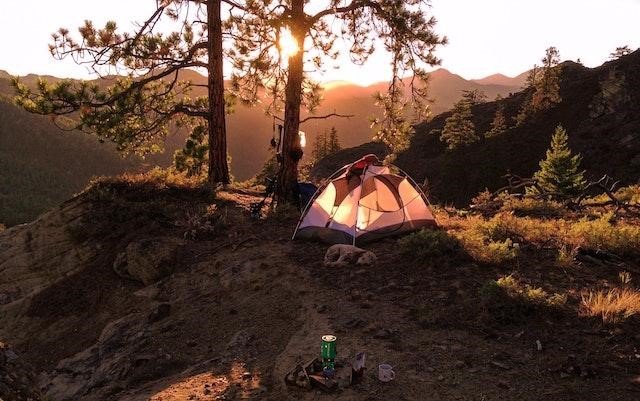Embarking on a camping trip can be a thrilling and memorable experience, allowing you to reconnect with nature and escape the hustle and bustle of everyday life. However, to make the most of your outdoor adventure, proper preparation is essential. From packing the right gear to planning your meals and safety measures, there are several crucial steps to take before setting off. In this blog, we will explore seven practical ways to prepare for a camping trip, ensuring you have a smooth and enjoyable time in the great outdoors.
1. Research Your Destination and Campground
Begin your preparations by researching your camping destination and the campground you will be staying at. Familiarize yourself with the area’s weather conditions, terrain, and local regulations. Check if the campground requires reservations and if there are any specific rules or restrictions you need to be aware of. Understanding the terrain will help you plan suitable activities and ensure you bring appropriate gear. Knowing the weather forecast can help you pack accordingly and be prepared for any sudden changes in conditions.
2. Create a Comprehensive Camping Checklist
Making a camping checklist is crucial to ensure you don’t forget essential items. Start by listing the basic camping gear, such as tents, sleeping bags, camping stoves, cookware, and lighting. Include personal items like clothing, toiletries, medications, and a first aid kit. Tailor your checklist to your specific needs and the activities you plan to engage in during the trip. Review the list several times to ensure you have everything you need before leaving for your camping adventure.
3. Set Up Your Tent Beforehand
If you have a new or recently purchased overlanding rooftop tent, it’s a good idea to start setting it up at home before your camping trip. This practice run will familiarize you with the tent’s assembly process and help you identify any missing parts or potential issues. Putting it up once before your trip can reduce frustrations when you reach your destination. Additionally, check the condition of your tent and ensure all zippers, seams, and stakes are in good working order. If you find any damages or defects, make the necessary repairs or consider purchasing a replacement.
4. Plan Your Meals and Food Preparation
Planning your meals in advance can save time and ensure you have enough food for the duration of your camping trip. Opt for easy-to-prepare and non-perishable meals that require minimal cooking. Consider using meal prep containers to organize ingredients and simplify the cooking process. Pack food in airtight containers to prevent spoilage and keep it away from wildlife. Don’t forget to bring essential utensils, a portable stove or grill, and enough water for cooking and drinking.
5. Check Your Camping Gear and Equipment
Inspect all your camping gear and equipment before heading out. Ensure that your camping stove is functioning correctly, and you have enough fuel for your entire trip. Test your camping lanterns and flashlights to ensure they are in working order and pack extra batteries. Check your sleeping bags for any tears or damage and make sure they are clean and dry. Inspect your camping chairs, tables, and any other camping furniture for stability and usability.
6. Practice Leave No Trace Principles
Responsible camping involves adhering to Leave No Trace principles to minimize your impact on the environment. These principles include packing out all trash, respecting wildlife and their habitats, and avoiding any actions that could harm the natural surroundings. Educate yourself and your camping group on Leave No Trace principles and ensure that you follow them throughout your trip. Leave the campground as you found it, preserving the beauty of nature for future generations to enjoy.
7. Inform Others About Your Plans
Before heading out on your camping trip, inform a friend or family member about your plans. Share details such as your destination, the expected duration of the trip, and the route you plan to take. Provide them with emergency contact information and any relevant medical information. Consider purchasing a satellite communicator or bringing a GPS device to stay connected in areas with limited cell service. Knowing that someone is aware of your plans adds an extra layer of safety and ensures that help can be alerted if needed.
Conclusion
Preparing for a camping trip is essential to have a safe and enjoyable outdoor experience. Research your destination and campground, create a comprehensive checklist, and set up your tent beforehand. Plan your meals, check your camping gear, and practice Leave No Trace principles to minimize your impact on the environment. Lastly, inform others about your plans and consider investing in communication devices for added safety. By following these seven ways to prepare for a camping trip, you can make the most of your time in the wilderness and create lasting memories with family and friends amidst nature’s beauty.

